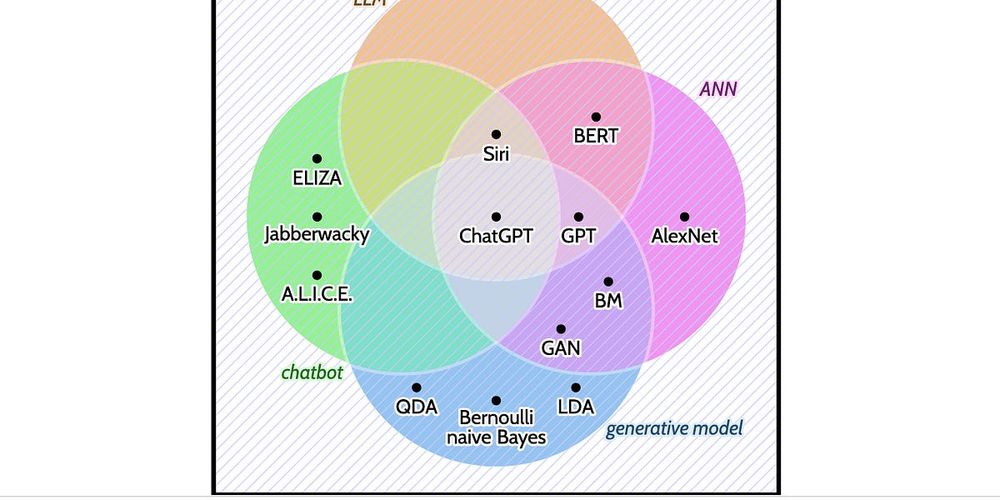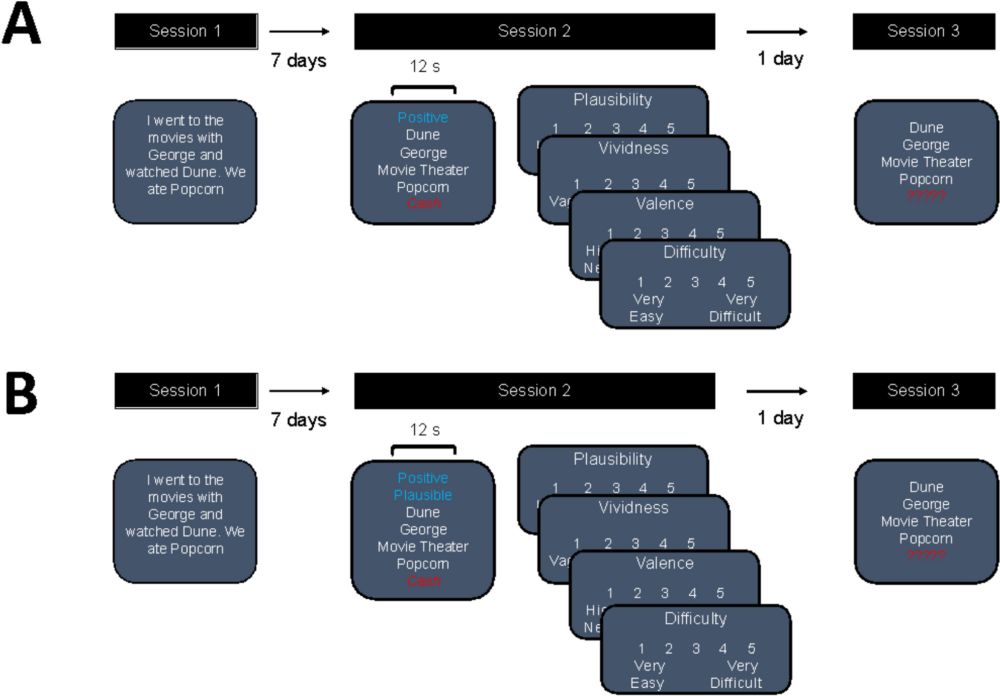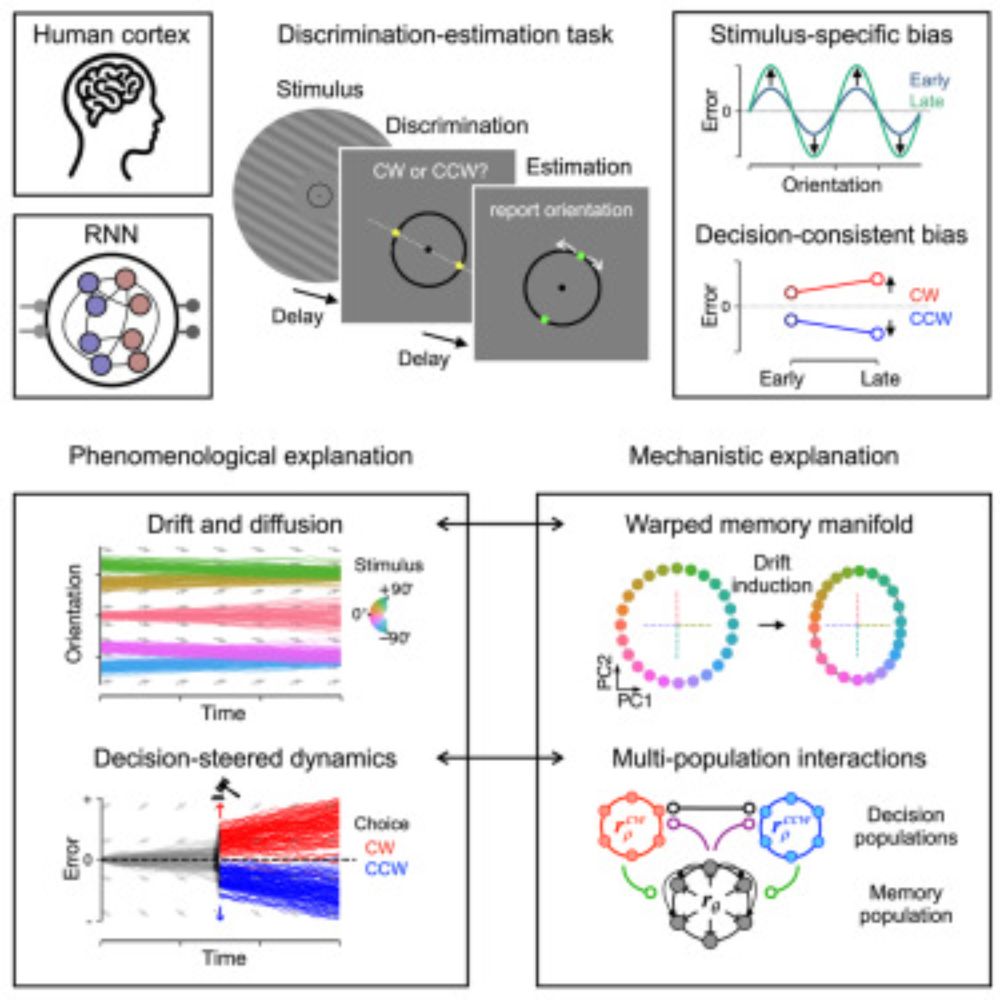Postdoc with Daphna Shohamy & Stefano Fusi @ Columbia
PhD with Ken Norman & Uri Hasson @ Princeton
https://qihongl.github.io/
I have RA, PhD, and postdoc positions available! Come work with me on neural network models + experiments on human memory!
RT appreciated!
(1/5)
Tolman famously said yes - based largely on his Sunburst maze.
Our new review & meta-analysis suggests evidence is far weaker than you might think.
🧵👇 doi.org/10.1111/ejn....
@uofgpsychneuro.bsky.social @ejneuroscience.bsky.social


on this new speculative piece on What it means to understand language, nicely summarized in this
Tweeprint from @coltoncasto.bsky.social arxiv.org/abs/2511.19757
on this new speculative piece on What it means to understand language, nicely summarized in this
Tweeprint from @coltoncasto.bsky.social arxiv.org/abs/2511.19757
Feedback appreciated!
www.biorxiv.org/content/10.1...
Feedback appreciated!
www.biorxiv.org/content/10.1...

www.biorxiv.org/content/10.1...
www.biorxiv.org/content/10.1...
www.biorxiv.org/content/10.1...

Paper: arxiv.org/pdf/2509.08825

Paper: arxiv.org/pdf/2509.08825
Consider applying for a PhD or Postdoc position, either through Computer Science or Psychology. You can register interest on our new website lake-lab.github.io (1/2)

Consider applying for a PhD or Postdoc position, either through Computer Science or Psychology. You can register interest on our new website lake-lab.github.io (1/2)
www.bloodinthemachine.com/p/cognitive-...

www.bloodinthemachine.com/p/cognitive-...

Congrats to @hayoungsong.bsky.social on this exciting paper! So fun to be involved!
We built an RNN🤖 with key-value episodic memory that learns causal relationships between events and retrieves memories like humans do!
Preprint www.biorxiv.org/content/10.1...
w/ @qlu.bsky.social, Tan Nguyen &👇

Congrats to @hayoungsong.bsky.social on this exciting paper! So fun to be involved!
And yes, when everyday objects are paired meaningfully (Bow-Arrow), people remember them better than when they’re unrelated (Glass-Arrow). (mini thread)

And yes, when everyday objects are paired meaningfully (Bow-Arrow), people remember them better than when they’re unrelated (Glass-Arrow). (mini thread)
Yu, X., Thakurdesai, S. P., & Xie, W. (2025). Associating everything with everything else, all at once: Semantic associations facilitate visual working memory formation for real-world objects. JEP:HPP.
Yu, X., Thakurdesai, S. P., & Xie, W. (2025). Associating everything with everything else, all at once: Semantic associations facilitate visual working memory formation for real-world objects. JEP:HPP.
I know of Griffiths:
press.uchicago.edu/ucp/books/bo...
And Moors:
www.cambridge.org/core/books/d...

I know of Griffiths:
press.uchicago.edu/ucp/books/bo...
And Moors:
www.cambridge.org/core/books/d...
By @claudia-lopez.bsky.social
#neuroskyence
www.thetransmitter.org/fmri/longer-...

By @claudia-lopez.bsky.social
#neuroskyence
www.thetransmitter.org/fmri/longer-...
New paper led by @shenyanghuang.bsky.social!
academic.oup.com/cercor/artic...
Older adults' memory benefits from richer semantic contexts. We found connectivity patterns supporting this semantic scaffolding.



New paper led by @shenyanghuang.bsky.social!
academic.oup.com/cercor/artic...
Older adults' memory benefits from richer semantic contexts. We found connectivity patterns supporting this semantic scaffolding.
I am so delighted that this work found a wonderful home at Open Mind. The peer review journey was a rollercoaster but it *greatly* improved the paper.
direct.mit.edu/opmi/article...
I am so delighted that this work found a wonderful home at Open Mind. The peer review journey was a rollercoaster but it *greatly* improved the paper.
direct.mit.edu/opmi/article...

Our perception isn't a perfect mirror of the world. It's often biased by our expectations and beliefs. How do these biases unfold over time, and what shapes their trajectory? A summary thread. (1/13)

Our perception isn't a perfect mirror of the world. It's often biased by our expectations and beliefs. How do these biases unfold over time, and what shapes their trajectory? A summary thread. (1/13)




